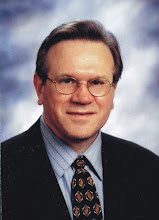As I drove through northeast Washington, DC, last Saturday night, on my way back to the University of Maryland campus from a dinner downtown, I thought about Rebecca Skloot and the research she did in coming up with her bestseller, The Immortal Life of Henrietta Lacks. Skloot had spoken at UGA two days earlier and had dinner with the health and medical journalism students that evening at the home of our professor, Pat Thomas.
In the book and at dinner, Skloot described one of her early ventures in search of the descendants of Lacks, whose cervical cells, dubbed HeLa, initiated a revolution in cell biology. In the late 1990s, she drove through a decaying subdivision where many African Americans had lived since the time Lacks died in 1951. Skloot drove in circles, going time and again past groups of current residents who stared at her, wondering what this white lady from Portland, Ore., was doing in the 'hood.
Having grown up in the South during the civil rights era, I have known blacks all my life. Some were the maids who raised me. Others were lifelong workers on my father's and his father's farms. Some were in my classes in the eighth grade, the first year of "freedom of choice" integration. And others came to the "white" high school in the 10th grade, when the traditionally white and black schools were consolidated and our mascot was changed from the Rebels to the Cougars.
Skloot lacked such a background when she began pursuing the Lacks story. The 'hood where she searched for clues to Lacks's story is about 45 miles north of the Washington 'hood through which I was driving, and it probably was worse in the late 1990s than what I was seeing in DC last Saturday night. But, if I had been looking for a story that night, would I have had the nerve to stop at these stores, drive through these neighborhoods, and get out and talk with people in search of a story?
I guess the question comes down to whether I've ever been so intrigued and obsessed by a story as Skloot was with the Lacks legend. I have written and edited hundreds of articles and even a few books, but they were ones I could usually research at a computer screen or in a library. Until I entered this master's program, my search for news sources had been on a well-lit path, one where I could rely on corporate and government announcements and a softball interview or two.
But now I've been confronted with real life, with the need to talk to people, as Prof. Thomas put it once, who don't look like I do. In the fall, that meant African Americans, Hispanic Americans, the unemployed. This semester, with Oconee County for a beat, everyone pretty much looks like me. But they often don't share my personal views on a lot of hot-button issues. I'm not sure which one has been more difficult—it's been just as hard to approach people who don't think like I do as those who don't look like I do.
All of which means that I have a lot of respect for Rebecca Skloot and her perseverance in getting this book researched and written. She really wanted to give voice to a woman whose life was taken silently during a period of segregation but whose cells live on today.
Maybe one day I'll have enough passion for a story that I will go into the 'hood in search of answers--perhaps even into some of those frightening 'hoods in Oconee County with the half-million-dollar McMansions. Maybe.


Okay, I'm totally rewarded by knowing that the courses I teach have gotten you out of your chair and into the streets. This was an interesting, provocative piece. We are who we are and you can't always tell by looking. But when courage is needed, it comes in many forms. That's what I've learned from the McGill Symposium on Journalistic Courage.
ReplyDeleteI loved the quote about how it's just as hard to interview people who don't think like you as it is to interview people who don't look like you do. We all share common stories and with your medical background, you and your subject could probably talk about someone who is on this treatment or that drug and they would connect through your knowledge on that topic... Since the most powerful journalism is usually not about a happy event, it is event more difficult to walk up to people in Oconee or anywhere and say, Look, you've lost your job (or whatnot) and how do you think the health care reform will help you.
ReplyDelete